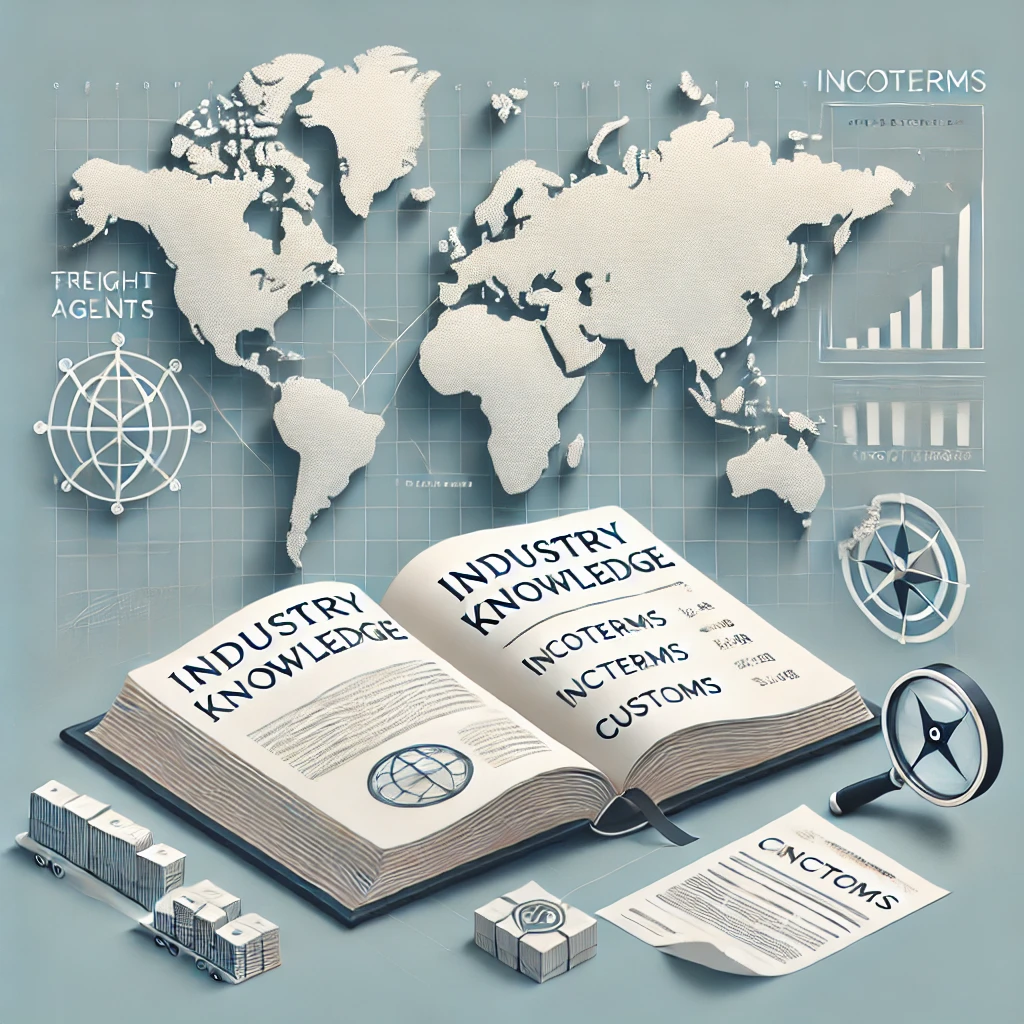How to Become a Freight Agent: A Comprehensive Guide to Starting Your Career in Freight Forwarding
What is a Freight Agent?
Before diving into how to become a freight agent, it’s essential to understand the role:
A freight agent, also known as a freight forwarder or cargo agent, is a professional who acts as an intermediary between shippers and transportation services. They organize the safe, efficient, and cost-effective transportation of goods on behalf of shippers.
Key Responsibilities of a Freight Agent:
- Arranging transportation for goods via air, sea, rail, or road
- Negotiating rates with carriers
- Preparing and processing shipping documentation
- Tracking shipments and providing updates to clients
- Ensuring compliance with customs regulations
- Problem-solving when shipping issues arise
Steps to Become a Freight Agent
1. Gain Relevant Education
While a specific degree isn’t always required, having a relevant educational background can be beneficial:
- Bachelor’s degree in logistics, supply chain management, or international business
- Associate’s degree in transportation or logistics
- Vocational courses in freight forwarding or logistics
2. Obtain Industry Knowledge
To become a successful freight agent, you need to understand the logistics industry:
- Learn about different modes of transportation (air, sea, rail, road)
- Familiarize yourself with international trade regulations and Incoterms
- Understand customs procedures and documentation requirements
- Stay informed about global trade trends and geopolitical factors affecting shipping
3. Gain Experience
Hands-on experience is crucial in the freight forwarding industry:
- Start with entry-level positions in logistics companies
- Consider internships with freight forwarding firms
- Work in related fields like customs brokerage or warehousing
4. Obtain Necessary Certifications and Licenses
Depending on your location and the specific services you’ll offer, you may need certain certifications or licenses:
Independent Freight Agent:
- Pros: Flexibility, potential for higher earnings
- Cons: Need to build your own client base, handle all aspects of the business
Employee of a Freight Forwarding Company
- Pros: Stable income, access to company resources and training
- Cons: Less autonomy, potentially lower earnings compared to successful independent agents
7. Build a Network
Networking is crucial in the freight forwarding industry:
- Join industry associations like the National Customs Brokers & Forwarders Association of America (NCBFAA)
- Attend logistics and supply chain conferences
- Participate in online forums and LinkedIn groups related to freight forwarding
8. Stay Updated with Industry Trends
The logistics industry is constantly evolving. To succeed as a freight agent, you must:
- Keep up with technological advancements in logistics
- Stay informed about changes in international trade regulations
- Understand the impact of global events on shipping routes and costs
Starting Your Career as a Freight Agent
Once you’ve completed the necessary steps to become a freight agent, it’s time to launch your career:
1. Create a Strong Resume
Highlight your education, certifications, and any relevant experience in logistics or related fields.
2. Apply for Positions
Look for job openings at:
- Freight forwarding companies
- Logistics providers
- International shipping companies
- E-commerce businesses with in-house logistics teams
3. Prepare for Interviews
Be ready to demonstrate your knowledge of:
- Freight forwarding processes
- International shipping regulations
- Problem-solving skills in logistics scenarios
4. Consider Starting as an Independent Agent
If you choose to become an independent freight agent:
- Develop a business plan
- Register your business and obtain necessary licenses
- Build relationships with carriers and potential clients
- Invest in essential tools and software for freight management
Advancing Your Career as a Freight Agent
As you gain experience, there are several ways to advance your career:
1. Specialization
Consider specializing in:
- Specific types of cargo (e.g., perishables, hazardous materials)
- Particular trade lanes or regions
- Certain modes of transportation (air, sea, rail, road)
2. Continuing Education
Pursue advanced certifications or degrees to enhance your expertise and value in the industry.
3. Leadership Roles
As you gain experience, you may move into management positions within freight forwarding companies.
4. Expanding Your Services
If working independently, consider expanding your service offerings to include:
- Customs brokerage
- Warehousing and distribution
- Supply chain consulting
Challenges and Opportunities in Freight Forwarding
Understanding the challenges and opportunities in the field is crucial as you learn how to become a freight agent:
Challenges:
- Rapidly changing technology and digitalization in logistics
- Fluctuating fuel prices and their impact on shipping costs
- Geopolitical events affecting global trade
- Increasing complexity of international regulations
Opportunities:
- Growing global trade volumes
- Increasing demand for specialized logistics services
- Emergence of new markets and trade routes
- Advancements in technology creating more efficient processes
The Future of Freight Forwarding
As you embark on your journey to become a freight agent, it’s important to consider the future of the industry:
- Digitalization: Embrace digital tools and platforms for freight management
- Sustainability: Understand and promote eco-friendly shipping options
- E-commerce Growth: Prepare for the increasing demand in online retail logistics
- Artificial Intelligence: Learn how AI is being applied in logistics for better efficiency

Conclusion: Embarking on Your Freight Agent Career
Generally speaking, anybody involved in international trade can leverage the benefits of a good freight forwarding companies, making the entire process painless and stress-free.
Even the largest cargo owners of the world work with freight forwarding companies for a part of their business as the flexibility and knowledge freight forwarders add to the supply chain network can prove to be really beneficial.
A freight forwarder can become an extension to your business in numerous ways. They can either be your outsourced shipping or adviser who adds valuable insight into the process of import and export to save you time and money.
Invest in a solution that’s dynamic, adaptable, and innovative. With Linbis, step into the future of warehouse management where technology, efficiency, and user experience coalesce to create a symphony of operational excellence.
